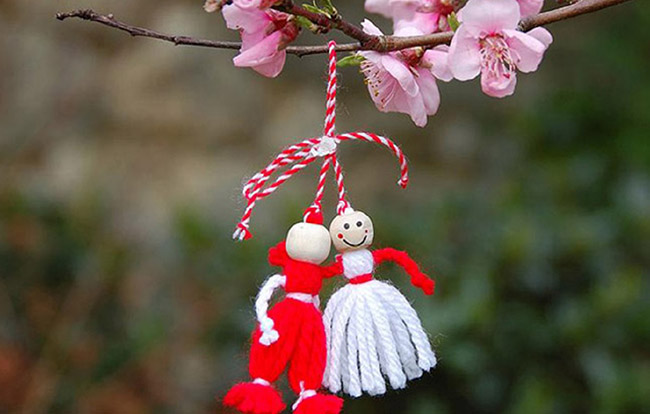
Every year, around this time, we encounter the same issue—whether or not to wear the martinka (red and white thread bracelet). The problem is not with the martinka itself, but with the attitude towards it.
If the martinka is worn for a few days or a week, whether to honor an old tradition, as a fashion statement, in respect for our ancestors, as part of shared Balkan cultural heritage, for fun, or for some other reason, it does not contradict the teachings of the Church.
However, if the wearing of the martinka becomes a superstitious and magical practice, and thereby a demonic custom, then such behavior is not in accordance with the teachings of the Church. Of course, everyone is free to listen to, or disregard, the Church’s teachings and is responsible for the decisions they make.
When does wearing the martinka become superstition? If people believe that, after placing the martinka on themselves on March 1st, they must not remove it until the arrival of spring and the swallows (or storks), or until the first tree blooms; and if, according to this false belief, they must hang the martinka on a tree at the end and make a wish for good health and happiness, with the belief that this ritual will make their wishes come true—then such belief and ritual have nothing to do with Orthodox faith but are simply superstition.
Removing the martinka prematurely is considered unlucky, which is why people hold onto it with fear. Fear is the greatest indicator that a demon is involved. How can our life and happiness depend on wearing or not wearing something, even if it were a cross and not a martinka? Even the cross is, above all, an internal relationship with God, not just an external symbol.
We Christians wear a prayer rope (brojanica) on our wrist or in our hand. The same applies to the prayer rope as it does to the martinka. The prayer rope is worn to help us focus on prayer, not because it is something inherently sacred that, by itself, brings us happiness. Wearing a prayer rope can also become a superstitious act.
Therefore, if someone attaches a martinka or a prayer rope to their wrist or clothing, believing that this, in and of itself, will bring them health and happiness, they should know that from that moment (whether consciously or unconsciously), they have turned away from God, that is, from the Orthodox Faith and Church, and cannot participate in Her Holy Mysteries.
We cannot simultaneously believe in both God and the magical power of the martinka or prayer rope. Faith and superstition have nothing in common, just as God has nothing in common with the devil. And no one can serve two masters: either we will serve God or the devil—so everyone is free to choose whom they will serve. Any other superstition, contrary to Orthodox faith, is not from God, no matter how much it may be a popular tradition.
Christian happiness and health stem from a personal communion with God, not from impersonal, magical, fearful, and soul-destroying superstition—which is fertile ground for the development of mental illnesses.
(The stance of the Macedonian Orthodox Church – Ohrid Archbishopric on the martinka)















